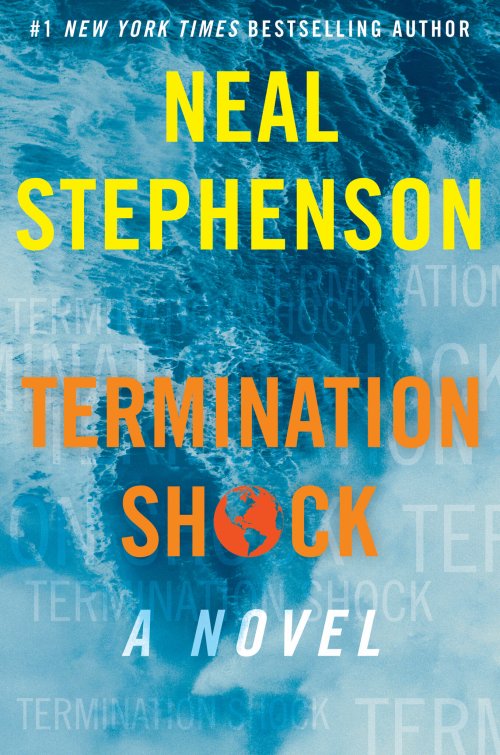[ad_1]
Neal Stephenson’s new novel Termination Shock is an effective ecological thriller, which looks to foment meaningful change for humanity as we face the greatest threat to our existence since the unleashing of the atomic bomb.
In his essay, ‘Innovation Starvation’ published in Project Hieroglyph, Stephenson posits that “Good SF supplies a plausible, fully thought-out picture of an alternative reality in which some sort of compelling innovation has taken place”. He further argues that “the imperative to develop new technologies and implement them on a heroic scale no longer seems like the childish preoccupation of a few nerds with slide rules. It’s the only way for the human race to escape from its current predicament.”
Termination Shock features one rogue Texan, T.R. Schmidt, Ph.D., who takes it upon himself to do that something heroic by buying massive reserves of sulphur and building the ‘Biggest Gun in the World’ in West Texas and to launch molten sulphur into the stratosphere. The effort is meant to mirror the cooling effects resulting from the eruption of Mount Pinatubo in 1991 which released 20,000,000 tons of SO2 into the atmosphere and cooled the planet by .5 degrees Celsius for two years. The Biggest Gun in the World aims to exceed the eruption’s effects and lower global temperatures in time for carbon-capture technologies to come online.
In some of Termination Shock’s sharpest criticism, Stephenson postulates that the rest of the world will view the U.S. as collapsed and no longer to be trusted or depended upon. Instead, a new collaboration of low-lying nations called ‘Netherworld’ emerges to try to tackle climate change because it will impact such places most directly and effectively. Among those taking leadership roles in Netherworld is the Queen of the Netherlands. ‘Saskia,’ as she is known to her confidantes, pilots her jet into Waco in the novel’s compelling opening scenes to meet with T.R. and his team from Houston as well as representatives from other low-lying areas such as Venice and the Maldives. T.R. successfully demos the Gun to convince these groups that releasing SO2 will buy their states time.
Thus, in one successful aspect of Stephenson’s previous thriller Fall that he builds upon here is the devolution of the United States into a divided, failed nation. In Fall, there are the blue, coastal areas that more or less function as designed. The red, inland areas are known as ‘Ameristan’ and the citizens there reject science, lustily embrace gun culture and evangelical Christianity, and watch as their infrastructure falls apart. Fall’s best sections feature a road trip through the hollowed-out remains of Ameristan, and Termination Shock suggests that the rest of the world looks at post-Trump America as a fallen power that cannot be revived. Netherworld thus emerges as a loose confederacy of small nation-states to develop and implement those new technologies Stephenson posits in his ‘Innovation’ essay.
Termination Shock’s strength lies less in the plausibility of the World’s Biggest Gun being constructed than in the inherent instability in doing nothing—climate refugees will, of course, soon be forced out of low-lying areas around the world, and the U.S., China, and India, as the leading producers of CO2, cannot pretend they will not be affected by population migrations, extinction events, and the loss of food-producing regions like the Punjab and ‘Ameristan.’
Like his early work Zodiac, chaos of all kinds ensues, and no lasting solution appears to have saved the day. Lives are lost, the breadbasket of India in the Punjab is threatened with drought, and little hope is afforded humanity in its conclusion. And yet this is not to say that Termination Shock is a failure of a novel. Those looking for an SF work in the vein of Anathem, The Diamond Age, or Cryptonomicon may be disappointed as Termination Shock is only obliquely an example of Stephenson’s great gifts for speculative fiction.
Termination Shock is a compelling read for this period of Stephenson’s career, in line with other recent works of climate fiction, though one wonders what, if anything, a few science fiction writers can do to influence real-world leaders whose incomes depend on doing nothing about climate change.

FICTION
Termination Shock
By Neal Stephenson
William Morrow & Company
Published November 16, 2021

[ad_2]
Source link

